Birkenmaier, J., Despard, M., Friedline, T., & Huang, J. (2019, February). Financial inclusion and financial access. In C. Franklin et al. (Eds.), Encyclopedia of Social Work. doi:10.1093/acrefore/9780199975839.013.1331
Author: CSD
People and Climate Change: Vulnerability, Adaptation, and Social Justice
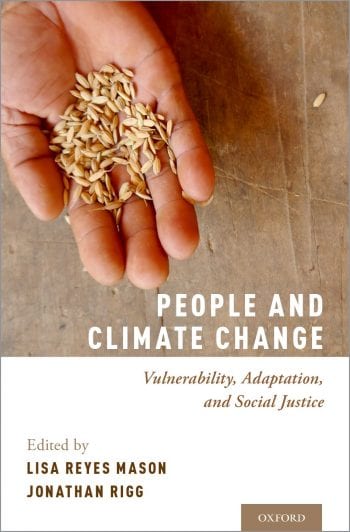
Mason, L. R., & Rigg, J. (Eds.) (2019). People and Climate Change: Vulnerability, Adaptation, and Social Justice. New York, NY: Oxford University Press
Effects of Youth Savings Accounts on School Attendance and Academic Performance: Evidence from a Youth Savings Experiment
Ansong, D., Chowa, G., Masa, R., Despard, M. R., Sherraden, M., Wu, S., & Osei-Akoto, I. (2019). Effects of youth savings accounts on school attendance and academic performance: Evidence from a youth savings experiment. Journal of Family and Economic Issues, 40(2), 269–281. http://doi.org/10.1007/s10834-018-9604-5
Social Mobility: The Necessary Focus of St. Louis Investment in Black Males
Joe, S., & Motley, R. (2019, February). Social mobility: The necessary focus of St. Louis investment in Black males (Race and Opportunity Lab Brief Report No. 1). St. Louis, MO: Washington University, Cen¬ter for Social Development, Race and Opportunity Lab. https://doi.org/10.7936/s7h3-ct03
My Brother’s Keeper Alliance embraces HomeGrown STL

Inspired by HomeGrown STL’s “strong track record of working to improve life outcomes for boys and young men of color,” the Obama Foundation’s My Brother’s Keeper Alliance has named HomeGrown STL a “Community to Watch.”
The Meadowlark Scholarship Act: Testimony on L.B. 544 Before the Education Committee, 106th Nebraska Legislature
Clancy, M. M. (2019). The Meadowlark Scholarship Act: Testimony on L.B. 544 before the Education Committee, 106th Nebraska Legislature (CSD Testimony No. 19-03). St. Louis, MO: Washington University, Center for Social Development. https://doi.org/10.7936/683w-bn26
Impacts of Child Development Accounts on Parenting Practices: Evidence from a Randomised Statewide Experiment
Huang, J., Nam, Y., Sherraden, M., & Clancy, M. M. (2019). Impacts of child development accounts on parenting practices: evidence from a randomised statewide experiment. Asia Pacific Journal of Social Work and Development, 29(1), 34–47. doi:10.1080/02185385.2019.1575270
Exploring a Model for Integrating Child Development Accounts With Social Services for Vulnerable Families
Huang, J., Beverly, S. G., Kim, Y., Clancy, M. M., & Sherraden, M. (2019). Exploring a model for integrating Child Development Accounts with social services for vulnerable families. Journal of Consumer Affairs, 53(3), 770–795. https://doi.org/10.1111/joca.12239
Clancy testifies before Nebraska lawmakers about Child Development Accounts
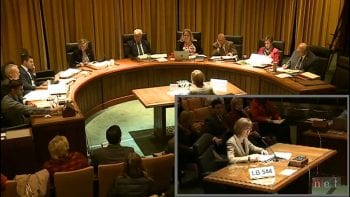
Center for Social Development Policy Director Margaret Clancy testified Tuesday before the Nebraska Legislature’s Education Committee. The subject: Child Development Account policy and research results.
Review praises ‘Facing Segregation’ for offering solutions
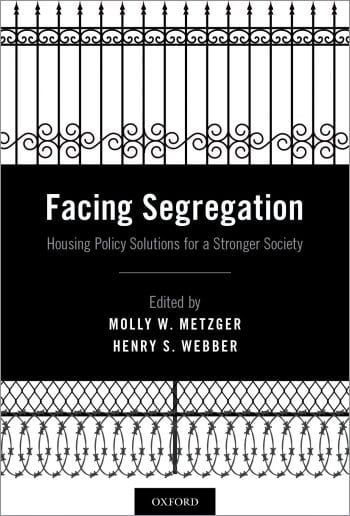
The editors of “Facing Segregation: Housing Policy Solutions for a Stronger Society” have compiled a collection of essays that “lay out the reality that segregation is not a periphery problem for cities like St. Louis or for the country,” according to a book review in the St. Louis American.
The Global Environmental Injustice of Fast Fashion
Bick, R., Halsey, E., & Ekenga, C. C. (2018). The global environmental injustice of fast fashion. Environmental Health, 17, 92. http://dx.doi.org/10.1186/s12940-018-0433-7
Atlanta school of social work breaks new ground in financial capability practice
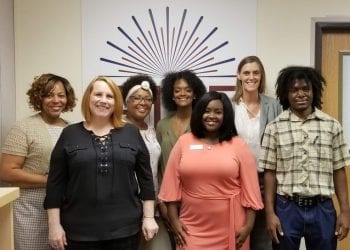
Clark Atlanta University has launched an internship program for MSW students built on the Center for Social Development’s pioneering work in Financial Capability and Asset Building.
Brown School authors encourage Native land acknowledgment

This fall, the Brown School began encouraging organizers to open public events by reading a Native acknowledgment statement.
Authors: Climate science must embrace social sciences and humanities for solutions

In “Five Dimensions of Climate Science Reductionism,” Jonathan Rigg and Lisa Reyes Mason assert that science tends to extract climate change from its social and environmental contexts, making climate change a “detached physical process.”
Financial Capability as Social Investment
Caplan, M., Sherraden, M. S., & Bae, J. (2018). Financial capability as social investment. Journal of Sociology & Social Welfare, 45(4), 147–167. doi:10.7936/gmfw-0e43
Asset Building as Social Investment
Sherraden, M. (2018). Asset building as social investment. Journal of Sociology and Social Welfare, 45(4), 35–54. doi:10.7936/d50p-as46
Released today: ‘Facing Segregation’ focuses on housing policy solutions

Fifty years after the passage of the Fair Housing and Civil Rights Acts, a new book ̶ “Facing Segregation: Housing Policy Solutions for a Stronger Society” brings together influential scholars, practitioners and policy analysts to reflect on how to use public policy to reduce segregation.
Facing Segregation: Housing Policy Solutions for a Stronger Society
Metzger, M. W., & Webber, H. S. (Eds.). (2018). Facing segregation: Housing policy solutions for a stronger society. New York, NY: Oxford University Press.
Foreword to Facing Segregation: Housing Policy Solutions for a Stronger Society
Sherraden, M. (2018). Foreword. In M. W. Metzger & H. S. Webber (Eds.), Facing segregation: Housing policy solutions for a stronger society (pp. ix–xi). New York, NY: Oxford University Press.
Segregation: A Threat to Americans’ Shared Goals
Metzger, M. W., & Webber, H. S. (2018). Segregation: A threat to Americans’ shared goals. In M. W. Metzger & H. S. Webber (Eds.), Facing segregation: Housing policy solutions for a stronger society (pp. 3–14). New York, NY: Oxford University Press.
The Enduring Significance of Segregation
Purnell, J. Q. (2018). The enduring significance of segregation. In M. W. Metzger & H. S. Webber (Eds.), Facing segregation: Housing policy solutions for a stronger society (pp. 58–74). New York, NY: Oxford University Press.
Concluding Thoughts on an Agenda for Solving Segregation
Webber, H. S., & Metzger, M. W. (2018). Concluding thoughts on an agenda for solving segregation. In M. W. Metzger & H. S. Webber (Eds.), Facing segregation: Housing policy solutions for a stronger society (pp. 233–242). New York, NY: Oxford University Press.
The Global Research Agenda on Volunteering for Peace and Development
Lough, B. J., Allum, C., Devereux, P., & Tiessen, R. (2018). The global research agenda on volunteering for peace and development (CSD Research Brief No. 18-50). St. Louis, MO: Washington University, Center for Social Development. doi:10.7936/xe2f-5p62
Achieving financial capability for all: What will it take?
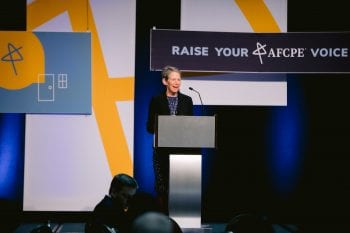
Millions of families in the United States are financially unstable, and they have few places to turn for guidance and support. Margaret Sherraden hopes to change that by marshalling a largely overlooked resource: The professionals at thousands of community-based organizations who deliver services to low-income people.
Brown School alumna receives lifetime achievement award in India
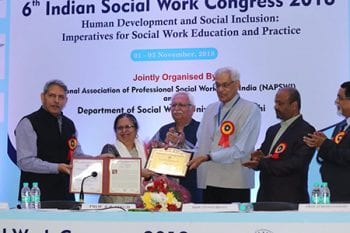
Murli Desai, a Brown School alumna, has received the Life Time Achievement Award from the National Association of Professional Social Workers in India.
CSD dispatches dozens of researchers to observe polls on Election Day
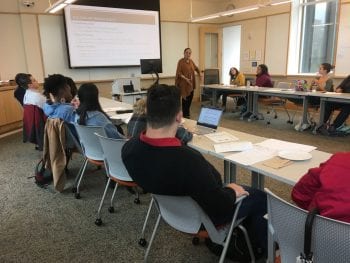
The Center for Social Development’s Voter Access and Engagement initiative trained and dispatched 38 researchers to 20 polling places in St. Louis City and County on Election Day, November 6.
Financial capability: A new focus of social work research, education and practice in mainland China
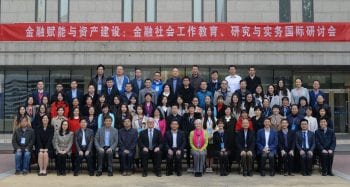
The Center for Social Development at Washington University’s Brown School is once again engaged in partnership for development of social work in mainland China. The focus is on financial capability.
CSD advises Azerbaijan officials on Child Development Account policy
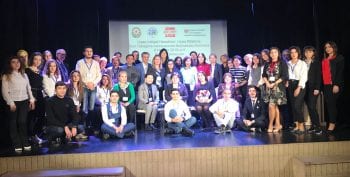
The Azerbaijan Minister of Labor and Social Protection Sahil Babayev and Social Policy and Services Department Head Himalay Mamishov met with Center for Social Development Director Michael Sherraden, International Director Li Zou and Research Associate Aytakin Huseynli.
Sherraden speaks about the future of social work in China
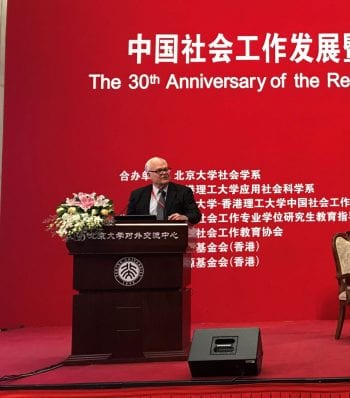
Center for Social Development Director Michael Sherraden and International Director Li Zou represented Washington University in St. Louis during a conference on “The 30th Anniversary of the Re-establishment of Social Work in China.”
University of Denver Grand Challenges event features Michael Sherraden
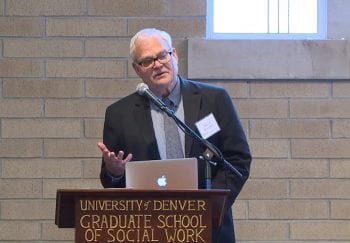
Michael Sherraden delivered the keynote address at the Grand Challenges for Social Work event “Economic Equality and Financial Capability” in October at the University of Denver’s Graduate School of Social Work.
‘We need a lot of different things happening to address climate change’
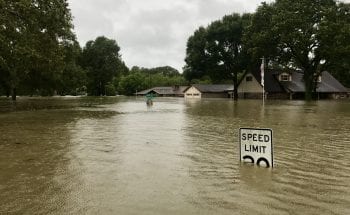
Soon after a landmark report from the United Nations’ scientific panel on climate change came out in October, Lisa Reyes Mason, Center for Social Development faculty director for Environment and Social Development, wrote an opinion piece and spoke on television about what people can do.
CSD researchers find ‘incomplete democracy’ in St. Louis City and County

In St. Louis and St. Louis County, voter registration and voting are lower in ZIP codes with more black residents, according to a new study from researchers at the Center for Social Development at Washington University in St. Louis.
Incomplete Democracy: The Relationship of Race, Income, and Education to Voter Participation
McClendon, G. G., Pitzer, K. A., & Tolani, A. T. (2018, October). Incomplete democracy: The relationship of race, income, and education to voter participation (CSD Research Brief No. 18-41). St. Louis, MO: Washington University, Center for Social Development. doi:10.7936/wbvn-1744
Brown School celebrates Washington University Day at Xi’an Jiaotong University
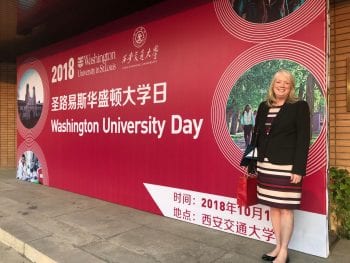
A delegation from Washington University in St. Louis including Brown School Dean Mary McKay and Center for Social Development leaders participated the celebration of Washington University Day at Xi’an Jiaotong University on October 15.
Native assets group wins federal grant to seed 270 Child Development Accounts

The Social and Economic Development grant from the Administration for Native Americans will fund asset-building services and programs in one of the most densely populated areas of Indian Country.
CSD experts spread financial capability concepts in China
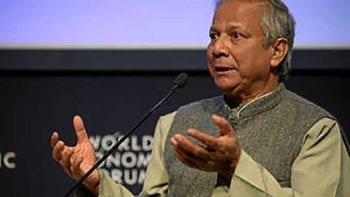
The article is the first in Chinese to describe U.S. social workers’ growing view about the importance of policy changes and institutional arrangements for financial inclusion and capability, and to emphasize the unique role of social workers in achieving this goal.
Author explains how upper middle class hoards American dream
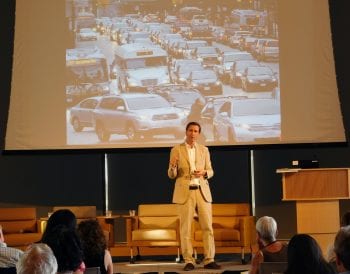
Are you a dream hoarder? If you’re in the “favored fifth” of income distribution, the top 20 percent, you may be, says Richard V. Reeves.
University of Denver hosts Grand Challenges event featuring Sherraden
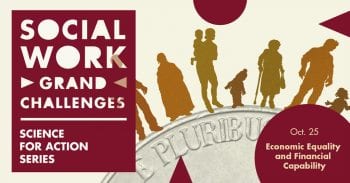
Michael Sherraden will deliver the keynote address at the Grand Challenges for Social Work event Economic Equality and Financial Capability on October 25 at the University of Denver’s Graduate School of Social Work.
International Volunteering Capacity Development: Volunteer Partner Organization Experiences of Mitigating Factors for Effective Practice
Tiessen, R., & Lough, B. J. (2019). International volunteering capacity development: Volunteer partner organization experiences of mitigating factors for effective practice. Forum for Development Studies, 46(2), 299–320. https://doi.org/10.1080/08039410.2018.1529701
NSF funds research into impact of race, gender in U.S. schools
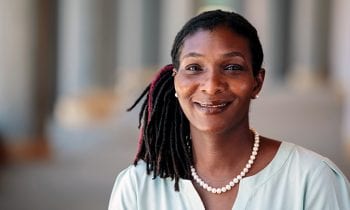
Sheretta Butler-Barnes, associate professor of social work at the Brown School and faculty director of Youth Development at the Center for Social Development, and Odis Johnson, associate professor of education and of sociology, in Arts & Sciences, have received a National Science Foundation grant of $100,000.
Poster highlights CSD’s Environment and Social Development project
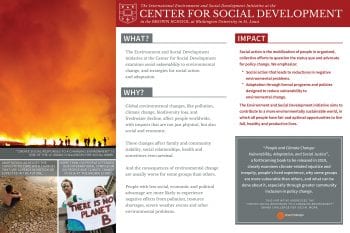
Global environmental changes affect people worldwide, with impacts that are not just physical, but also social and economic. These changes affect family and community stability, social relationships, health and sometimes survival.
Smart Decarceration Practice Behaviors for Social Work Competencies: A Guide for Educators and Learners
Copeland, P., Jacob, D., Young, D., Grier, A., Kennedy, S., & Tripodi, S. (2018, October). Smart decarceration practice behaviors for social work competencies: A guide for educators and learners [Report]. Tallahassee, FL: Florida State University College of Social Work, Institute for Justice Research and Development.
Deferred Prosecution Programs: An Implementation Guide
Pettus‐Davis, C., Epperson, M., Grier, A., Kraatz, M., Sawh, L., & Kennedy, S. (2018, October). Deferred prosecution programs: An implementation guide [Report]. Tallahassee, FL: Florida State University College of Social Work, Institute for Justice Research and Development, Washington University Center for Social Development, and University of Chicago School of Social Service Administration.
Tsinghua University professor discusses social work in China
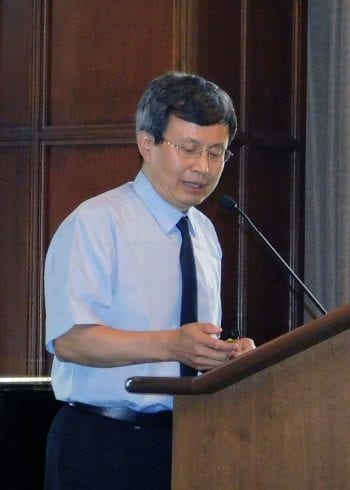
Students, faculty and staff crowded into Brown Hall on Sept. 17 to hear Professor Sheying Chen deliver the lecture “Building Social Work in China.”
Impact of Federal Transfers Upon US Infant Mortality Rates: A Secondary Analysis Using a Fixed Effects Regression Approach
McLaughlin, M., & Rank, M. R. (2018). Impact of federal transfers upon US infant mortality rates: a secondary analysis using a fixed effects regression approach. BMJ Open, 8, e021533. doi:10.1136/bmjopen-2018-021533
Series seeks to change narrative for local black males
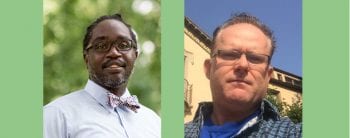
HomeGrown STL Director Sean Joe and St. Louis American Managing Editor Chris King have teamed up to produce a yearlong series called “Homegrown Black Males” to change the narrative for local black teens and men.
Shenyang Guo receives Distinguished Faculty Award
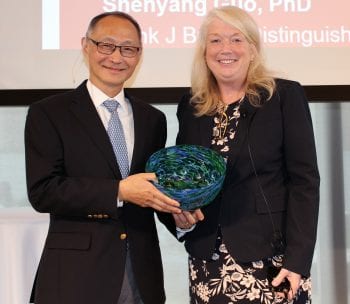
Guo, the Frank J. Bruno Distinguished Professor of Social Work Research, is the research director at the Center for Social Development.
Black Males, Trauma, and Mental Health Service Use: A Systematic Review
Motley, R., & Banks, A. (2018). Black males, trauma, and mental health service use: A systematic review. Perspectives on Social Work, 14(1), 3–19.
Nobel Peace Prize recipient discusses poverty with Zou
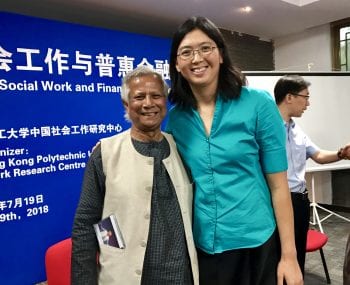
Li Zou, the Center for Social Development’s international director, participated in two high-profile events this summer in Beijing.
CSD sponsors voter engagement summit
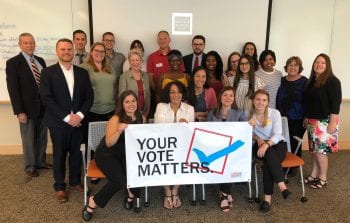
Representatives from St. Louis universities and community organizations gathered for the first Campus and Community Voter Engagement Summit, on August 9 at the Brown School.